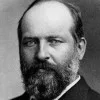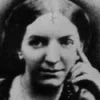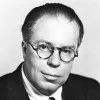PATRICK: It was just so embarrassing. I didn’t know what to do.
STEVE: Happens to us all mate.
JEFF: All of us, in our time, are visited by the Melty Man.
PATRICK: The what?
JEFF: Don’t say his name, Patrick. Don’t even think his name or he will rise from the shadow dimensions to do his evil work on your terrified pants.
PATRICK: (chuckle) Terrified pants?
STEVE: (gravely) There’s nothing funny about the Melty Man, Patrick.
PATRICK: (face falls) You know about the Melty Man, too?
STEVE: We all know the Melty Man.
PATRICK: Who is he?
STEVE: The archenemy of trouser confidence.
JEFF: Professor Moriarty, in groin form.
STEVE: Darth Vader.
JEFF: Without the helmet.
PATRICK: What does he do?!
JEFF: Patrick, you know what he does.
PATRICK: (looks down) Oh, right.
JEFF: You’re in bed with a woman. Everything’s going fine. That’s when the Melty Man strikes.
STEVE: Suddenly you find yourself thinking, “Maybe she’s really bored.”
JEFF: Maybe you’re licking her neck too much. Are you over-wetting her neck?
STEVE: Are you spending an equal amount of time on each breast? I mean, what happens if one breast gets ahead?
JEFF: Should you be switching between them really quickly or should you squish ’em both together and do them at once?
STEVE: Or are you allowed to just skip one breast completely, just to save time?
JEFF: She’s wriggling about a bit. Is that a good sign or is she just trying to dry her neck?
STEVE: Should you kiss her now or does that mean you gotta start at the top again?
JEFF: Should you be making noises yet? Is it too soon to grunt?
STEVE: And then, the killer — out of nowhere, for no reason you can think of, you call her (huskily) “baby.”
JEFF: You never called her baby before.
STEVE: You’ve never called anyone baby before.
JEFF: So why did you just call her baby? Suddenly you’re starting to blush.
STEVE: Now, you’re blushing and you’ve got an erection. No-one’s got enough blood!
JEFF: (Scotty voice) It’s the engines, Cap’n! They cannae take it!
STEVE: Then the Melty Man hits you with his secret weapon.
JEFF: Just one single thought placed in your mind at this crucial time.
STEVE: “Please God! Don’t let me lose my erection!”
JEFF: (lowers his hand) Poof.
PATRICK: (with terror and disblief) How do you guys manage to have sex?
STEVE: We don’t.
JEFF: I haven’t had sex in years.
STEVE: It’s just not possible anymore.
JEFF: We are followers of the Melty Man.
STEVE: And you are one of us now.
Steven Moffat (b. 1961) Scottish television writer, producer
Coupling, 02×04 “The Melty Man Cometh” (2001-09-24)
(Source)
(Source (Video) -- dialog verified)
Quotations about:
distraction
Note not all quotations have been tagged, so Search may find additional quotes on this topic.
That Greek one then is my hero, who watched the bath water
rise above his navel and rushed out naked. “I found it,
I found it” into the street in all his shining, and forgot
that others would only stare at his genitals. What laughter!Daniel "Dannie" Abse (1923-2014) Welsh poet
Poem (1952), “Letter to Alex Comfort,” Walking Under Water
(Source)
Referring to Archimedes.
It’s not so easy to go on to the balcony unless of course that’s what you want. As it turned out, that isn’t what I want. The great terror of public speaking is that you begin to listen to yourself. By and by, since you are always telling people what to think, you begin to forget what you do to think. And the moment that happens, of course, it’s over. It’s over.
James Baldwin (1924-1987) American novelist, playwright, activist
Interview (1965-07), “Race, Hate, Sex, and Colour: A Conversation,” with Colin MacInnes and James Mossman, Encounter, BBC Two TV
(Source)
On fame and the increased calls for him to speak and lecture rather than write.
Transcribed in Vol. 25, issue 1 of Encounter magazine (1965-07). I cannot narrow down if it was the episode on 8 or 22 July. (Some sources suggest the 18 February episode; the July date may just come from the magazine version.)
Work destroys your soul by stealthily invading your brain during the hours not officially spent working; be selective about professions.
Nassim Nicholas Taleb (b. 1960) Lebanese-American essayist, statistician, risk analyst, aphorist
The Bed of Procrustes: Philosophical and Practical Aphorisms, “Preludes” (2010)
(Source)
Study has always been for me the sovereign remedy against life’s unpleasantness, since I have never experienced any sorrow that an hour’s reading did not eliminate.
[L’étude a été pour moi le souverain remède contre les dégoûts de la vie, n’ayant jamais eu de chagrin qu’une heure de lecture n’ait dissipé.]
Charles-Lewis de Secondat, Baron de Montesquieu (1689-1755) French political philosopher
Pensées [Thoughts], # 213 (1720-1755) [tr. Clark (2012)]
(Source)
(Source (French)). Alternate translations:Study has been my sovereign remedy against the worries of life. I have never had a care that an hour's reading could not dispel.
[Source (1826)]Study is a sovereign remedy against the troubles of life; there is no vexation which an hour's reading cannot mitigate.
[E.g. (1877)]Study has been to me a sovereign remedy against the vexations of life, having never had an annoyance that one hour's reading did not dissipate.
[E.g. (1905)]Study has been my sovereign remedy against life's disappointment; I have never known any distress that an hour's reading did not relieve.
[ed. Guterman (1963)]
When we are working at a difficult task and strive after a good thing we fight a righteous battle, the direct reward of which is that we are kept from much evil.
We must try to keep the mind in tranquility. For just as the eye which constantly shifts its gaze, now turning to the right or to the left, now incessantly peering up and down, cannot see distinctly what lies before it, but the sight must be fixed firmly on the object in view if one would make his vision of it clear, so too man’s mind when distracted by his countless worldly cares cannot focus itself distinctly on the truth.
Basil of Caesarea (AD 330-378) Christian bishop, theologian, monasticist, Doctor of the Church [Saint Basil the Great, Ἅγιος Βασίλειος ὁ Μέγας]
Letter to Gregory of Nazianzus (c. AD 358) [tr. Defarrari (1926)]
(Source)
A shrewd man has to arrange his interests in order of importance and deal with them one by one; but often our greed upsets this order and makes us run after so many things at once that through over-anxiety to have the trivial we miss the most important.
[Un habile homme doit régler le rang de ses intérêts et les conduire chacun dans son ordre. Notre avidité le trouble souvent en nous faisant courir à tant de choses à la fois que, pour désirer trop les moins importantes, on manque les plus considérables.]
François VI, duc de La Rochefoucauld (1613-1680) French epigrammatist, memoirist, noble
Réflexions ou sentences et maximes morales [Reflections; or Sentences and Moral Maxims], ¶66 (1665-1678) [tr. Tancock (1959)]
(Source)
Present in the first, 1665 edition in a slightly longer form:Un habile homme doit savoir régler le rang de ses intérêts et les conduire chacun dans son ordre. Notre avidité le trouble souvent en nous faisant courir à tant de choses à la fois que, pour désirer trop les moins importantes, nous ne les faisons pas assez servir à obtenir les plus considérables.
(Source (French)). Alternate translations:In this the prudent man is distinguishable from the imprudent, that he regulates his interests, and directs them to the prosecution of his designs each in their order. Our earnestness does many times raise a disturbance in them, by hurrying us after a hundred things at once. Thence it proceeds, that out of an excessive desire of the less important, we do not what is requisite for the attainment of the most considerable.
[tr. Davies (1669), ¶165]A wise Man should order his Designs, and set all his Interests in their proper places. This Order is often disturbed by a foolish greediness, which, while it puts us upon pursuing several things at once, makes us eager for matters of less consideration; and while we grasp at trifles, we let go things of greater Value.
[tr. Stanhope (1694), ¶67]An able man will arrange his interests, and conduct each in its proper order. Our greediness often hurts us, by making us prosecute so many things at once; by too earnestly desiring the less considerable, we lose the more important.
[pub. Donaldson (1783), ¶205; ed. Lepoittevin-Lacroix (1797), ¶65]An able man will arrange his respective interests;, and conduct each in its proper order. Ambition is often injurious, by tempting us to prosecute too much at once. By earnestly desiring the less considerable, we lose the more important.
[ed. Carville (1835), ¶473]A clever man should regulate his interests, and place them in proper order. Our avidity often deranges them by inducing us to undertake too many things at once; and by grasping at minor objects, we lose our hold of more important ones.
[ed. Gowens (1851), ¶67]A clever man ought to so regulate his interests that each will fall in due order. Our greediness so often troubles us, making us run after so many things at the same time, that while we too eagerly look after the least we miss the greatest.
[tr. Bund/Friswell (1871)]A wise man co-ordinates his interests, and develops them according to their merits. Cupidity defeats its own ends by following so many at once that in our greed for trifles we lose sight of important matters.
[tr. Heard (1917)]A clever man will know how to range his interests, and will pursue each according to its merits. Our greed, however, will often confuse our method; for we run after so many things at once that we frequently miss what is of importance in pursuit of what is negligible.
[tr. FitzGibbon (1957)]Clever men should arrange their desires in the proper order and seek each in turn. In our eagerness we often attempt too many things at once, and by striving too much after the small ones we lose the big.
[tr. Kronenberger (1959)]A wise man ought to arrange his interests in their true order of importance. Our greed often disturbs this order by making us pursue so many things at once that, for too much desiring the least important, we miss those that are most so.
[tr. Whichello (2016)]
People who are too much concerned with little things usually become incapable of big ones.
[Ceux qui s’appliquent trop aux petites choses deviennent ordinairement incapables des grandes.]François VI, duc de La Rochefoucauld (1613-1680) French epigrammatist, memoirist, noble
Réflexions ou sentences et maximes morales [Reflections; or Sentences and Moral Maxims], ¶41 (1665-1678) [tr. Kronenberger (1959)]
(Source)
Present from the 1665 edition. See here for more discussion (English).
(Source (French)). Alternate translations:They that use to employ their minds too much upon Trifles, commonly make themselves incapable of any thing that is serious or great.
[tr. Stanhope (1694), ¶42]Those who apply themselves too much to little things, commonly become incapable of great ones.
[pub. Donaldson (1783), ¶38; ed. Lepoittevin-Lacroix (1797), ¶41]]Those who apply themselves much to little things, commonly become incapable of great ones.
[ed. Carville (1835), ¶35]Those who bestow too much application on trifling things, become generally incapable of great ones.
[ed. Gowens (1851), ¶42]Those who apply themselves too closely to little things often become incapable of great things.
[tr. Bund/Friswell (1871)]Undue attention to details tends to unfit us for greater enterprises.
[tr. Heard (1917)]Too close attention to trifles generally breeds incapacity in matters of moment.
[tr. Stevens (1939)]Men too involved in details usually become unable to deal with great matters.
[tr. FitzGibbon (1957)]People too much taken up with little things usually become incapable of big ones.
[tr. Tancock (1959)]Those who apply themselves too much to little things, ordinarily become incapable of great ones.
[tr. Whichello (2016)]
I don’t know ov a better kure for sorrow than tew pity sum boddy else.
[I don’t know of a better cure for sorrow than to pity somebody else.]
Nearly all of history is only a string of horrors. If tyrants dismiss it while they are alive, it seems that their successors allow people to transmit to posterity the crimes of their predecessors, in order to offer diversion away from the horror that they inspire themselves.
[Presque toute l’Histoire n’est qu’une suite d’horreurs. Si les tyrans la détestent, tandis qu’ils vivent, il semble que leurs successeurs souffrent qu’on transmette à la postérité les crimes de leurs devanciers, pour faire diversion à l’horreur qu’ils inspirent eux-mêmes.]
Nicolas Chamfort (1741-1794) French writer, epigrammist (b. Nicolas-Sébastien Roch)
Products of Perfected Civilization [Produits de la Civilisation Perfectionée], Part 1 “Maxims and Thoughts [Maximes et Pensées],” ch. 8, ¶ 474 (1795) [tr. Siniscalchi (1994)]
(Source)
(Source (French)). Alternate translations:Nearly all History is a procession of horrors; but, although tyrants hate History in their own lifetime, a general transmission of such crimes is not unpleasing to their descendants, for it distracts attention from their own.
[tr. Mathers (1926)]Almost the whole of history is nothing but a series of horrors. If tyrants detest it while they are alive, their successors seem willing to allow the crimes of their predecessors to be transmitted to posterity, to divert attention from the horror that they themselves inspire.
[tr. Merwin (1969)]Almost the whole of history is nothing more than a series of horrors. If tyrants detest it while they are alive, it seems that their that their successors suffer that the crimes of their predecessors should be laid at the door of posterity, in order to divert attention from the horrors to which they themselves give rise.
[tr. Pearson (1973)]Almost all of history is a story of horror. If tyrants condemn it during their lifetime, their successors seem to allow the crimes of their predecessors to be passed on to posterity, thereby diverting attention from the horror they themselves inspire.
[tr. Parmée (2003)]
Everybody knows if you are too careful you are so occupied in being careful that you are sure to stumble over something.
Gertrude Stein (1874-1946) American expatriate author, feminist
Everybody’s Autobiography, ch. 1 (1937)
(Source)
Cats are dangerous companions for writers because cat watching is a near-perfect method of writing avoidance.
Dan Greenburg (1936-2023) American writer, humorist, journalist
In Bill Hayward, Cat People (1978)
(Source)
The enemy for the fanatic is pleasure, which makes it extremely important to continue to indulge in pleasure. Dance madly. That is how you get rid of terrorism.
Salman Rushdie (b. 1947) Indian novelist
“Public Event, Private Lives,” speech, University of Colorado, Boulder (2013-04-17)
(Source)
For always the man in whom thought springs up over thought sets his mark farther off, for the one thought saps the force of the other.
[Ché sempre l’omo in cui pensier rampolla
sovra pensier, da sé dilunga il segno,
perché la foga l’un de l’altro insolla]Dante Alighieri (1265-1321) Italian poet
The Divine Comedy [Divina Commedia], Book 2 “Purgatorio,” Canto 5, l. 16ff (5.16-18) (1314) [tr. Sinclair (1939)]
(Source)
Virgil telling Dante he's overthinking things, letting himself be distracted.
(Source (Italian)). Alternate translations:He, that permits his Fancy thus to stray.
With every lure, will rarely find his way
To that great end, to which his soul is bent:
For gath'ring fancies warp the steady light
Of Reason's beam, and leave her whelm'd in night,
For ever baffled of her first intent.
[tr. Boyd (1802), st. 3]He, in whose bosom thought on thought shoots out,
Still of his aim is wide, in that the one
Sicklies and wastes to nought the other’s strength.
[tr. Cary (1814)]He in whose bosom thought springs up to thought,
Destroys himself the figures of his loom --
The birth of one prepares the others's tomb.
[tr. Bannerman (1850)]For evermore the man in whom is springing
Thought upon thought, removes from him the mark,
Because the force of one the other weakens.
[tr. Longfellow (1867)]For ever the man, in whom thought wells up over thought, removes far from himself his mark, because the rush of the second slackens the first.
[tr. Butler (1885)]Always the man in whom new thought doth grow
On previous thought, from his true course doth roam,
Because the one doth flag the other's glow.
[tr. Minchin (1885)]For always the man in whom thought on thought wells up removes from himself his aim, for the force of one weakens the other.
[tr. Norton (1892)]For ever the man in whom thought wells up on thought, sets back his mark, because the one saps the force of the other.
[tr. Okey (1901)]For always he in whom thought overtakes
The former thought, his goal less clearly sees.
Because the one the other must relax.
[tr. Binyon (1943)]He aims beside the mark whose fancies bubble
One on another, driving back and drumming
Each other out, so that his eye sees double.
[tr. Sayers (1955)]For when a man lets his attention range
toward every wisp, he loses true direction,
sapping his mind's force with continual change.
[tr. Ciardi (1961)]For always the man in whom thought wells
up on thought sets back his mark,
for one thought weakens the force of the other.
[tr. Singleton (1973)]The man who lets his thoughts be turned aside
by one thing or another, will lose sight
of his true goal, his mind sapped of its strength.
[tr. Musa (1981)]Because the man in whom thoughts bubble up
One after the other, goes wide of the mark,
Because one thought weakens the force of another.
[tr. Sisson (1981)]The man in whom thought thrusts ahead of thought
allows the goal he’s set to move far off --
the force of one thought saps the other’s force.
[tr. Mandelbaum (1982)]For always the man in whom one care sprouts above the other makes his target more distant, because the impulse of the one weakens the other.
[tr. Durling (2003)]Since the man, in whom thought rises on thought, sets himself back, because the force of the one weakens the other.
[tr. Kline (2002)]When thought is bred too rampantly from thought,
then, of himself, a man will miss the mark.
Each mental thrust debilitates the first.
[tr. Kirkpatrick (2007)]For any man who lets one thought --
and then another -- take him over
will soon lose track of his first goal.
[tr. Hollander/Hollander (2007)]A man whose mind is distracted lets thought after thought
Keep him from getting where he wants to go:
They hammer each other down; nothing can grow.
[tr. Raffel (2010)]
Parents are often so busy with the physical rearing of children that they miss the glory of parenthood, just as the grandeur of trees is lost when raking leaves.
Marcelene Cox (1900-1998) American writer, columnist, aphorist
“Ask Any Woman” column, Ladies’ Home Journal (1945-05)
(Source)
I feel that art has something to do with the achievement of stillness in the midst of chaos. A stillness that characterizes prayer, too, and the eye of the storm. I think that art has something to do with an arrest of attention in the midst of distraction.
There is nothing like employment, active indispensable employment, for relieving sorrow. Employment, even melancholy, may dispel melancholy, and her occupations were hopeful.
Sparks are a secretive lot, and they keep their blasphemous secrets held close to their vests. On average, a good Spark will invest anywhere from one-half to two-thirds of his or her time and energy on the design and hiding of an elaborate lair, as they seem to have an instinctual understanding that people work best in an environment where the controls to all the deathtraps are right at their fingertips. This is a good thing, overall, as time spent digging an elaborate “Maze of Madness” is less time spent trying to find a way to turn the nearest city into a beautiful volcanic moonscape.
Phil Foglio (b. 1956) American writer, cartoonist
Agatha H and the Voice of the Castle (2014) [with Kaja Foglio]
(Source)
At least there are more forms of escapism than those who bandy that word about are always aware of. An artist, for instance, may escape from the problems of his art — which are hard to solve — into a consideration of the problems of society which he sometimes seems to think require of him only that he complain about them. Even the ordinary citizen is not always guiltless of similar techniques and it is, for example, sometimes easier to head an institute for the study of child guidance than it is to turn one brat into a decent human being.
Objects close to the eye shut out much larger objects on the horizon; and splendors born only of the earth eclipse the stars. So a man sometimes covers up the entire disk of eternity with a dollar, and quenches transcendent glories with a little shining dust.
The worst days of darkness through which I have ever passed have been greatly alleviated by throwing myself with all my energy into some work relating to others.
James A. Garfield (1831-1881) US President (1881), lawyer, lay preacher, educator
Letter to B. A. Hinsdale (30 Apr 1874)
(Source)
Tell him I was too fucking busy — or vice versa.
Dorothy Parker (1893-1967) American writer, poet, wit
(Attributed)
In Hard Times, Vol. 6 (1967), the anecdote is that a messenger pounded on her door for several minutes, having been sent by a New Yorker editor for some promised writing. She finally opened a second-floor window, called down to find out what was the matter, and provided this retort.
In Oscar Levant, The Unimportance of Being Oscar (1968), it's phrased "Too fucking busy, and vice versa."
There’s some devil in us that drives us to and fro on everlasting idiocies. There’s time for everything except the things worth doing. Think of something you really care about. Then add hour to hour and calculate the fraction of your life that you’ve actually spent in doing it. And then calculate the time you’ve spent on things like shaving, riding to and fro on buses, waiting in railway, junctions, swapping dirty stories, and reading the newspapers.
George Orwell (1903-1950) English writer [pseud. of Eric Arthur Blair]
Coming up for Air, ch. 5 (1939)
(Source)
ASA: Well, I guess I know enough to turn you inside out, old gal — you sockdologizing old man-trap.
(Other Authors and Sources)
Tom Taylor, Our American Cousin, Act 3, sc. 2 (1858)
The biggest laugh line in the play, so chosen by John Wilkes Booth to use as a cover for his shooting Abraham Lincoln on 14 Apr 1865.
Sockdologizing.
It is the trifles of life that are its bores, after all. Most men can meet ruin calmly, for instance, or laugh when they lie in a ditch with their own knee-joint and their hunter’s spine broken over the double post and rails: it is the mud that has choked up your horn just when you wanted to rally the pack; it’s the whip who carries you off to a division just when you’ve sat down to your turbot; it’s the ten seconds by which you miss the train; it’s the dust that gets in your eyes as you go down to Epsom; it’s the pretty little rose note that went by accident to your house instead of your club, and raised a storm from madame; it’s the dog that always will run wild into the birds; it’s the cook who always will season the white soup wrong — it is these that are the bores of life, and that try the temper of your philosophy.
Ouida (1839-1908) English novelist [pseud. of Maria Louise Ramé]
Under Two Flags, ch. 1 (1867)
(Source)
Acting is merely the art of keeping a large group of people from coughing.
There are millions of ways to not be writing.
Rod Serling (1924-1975) American screenwriter, playwright, television producer, narrator
“Rod Serling: The Facts of Life,” Interview with Linda Brevelle (4 Mar 1975)
(Source)
One of the greatest advantages of the totalitarian elites of the twenties and thirties was to turn any statement of fact into a question of motive.
Hannah Arendt (1906-1975) German-American philosopher, political theorist
(Spurious)
This is frequently cited to Arendt, often to The Origins of Totalitarianism, (1951), but is not found as such in her works. The source appears to be a paraphrase of Arendt in a 1999 New Yorker article.
Stuart Elden suggested the following from The Origins of Totalitarianism, Part 3, ch. 11, might be original quotation the paraphrase was built on, though the overall meaning is different:The elite is not composed of ideologists; its members’ whole education is aimed at abolishing their capacity for distinguishing between truth and falsehood, between reality and fiction. Their superiority consists in their ability immediately to dissolve every statement of fact into a declaration of purpose.
The best way to cheer yourself is to try to cheer somebody else up.
Mark Twain (1835-1910) American writer [pseud. of Samuel Clemens]
Note (1896-11-26), Mark Twain’s Notebook, ch. 27 “England” (1935) [ed. Albert Bigelow Paine]
(Source)
Written while in Guilford, England, shortly after the death of his daughter Susy in America.
Often given as "The best way to cheer yourself up is to try to cheer somebody else up." More discussion here.
We discovered at one point that the brick wall of the pillar would hold up a sock pretty well. This led to sorting socks by putting them on the wall, which in turn led to mosaics built entirely of socks. Mission drift is a hazard in all pursuits, including doing the laundry.
James Nicoll (b. 1961) Canadian reviewer, editor
“Another question about expectations,” rec.arts.sf.written, Usenet (22 May 2005)
(Source)
Men love better books which please them than those which instruct. Since their ennui troubles them more than their ignorance, they prefer being amused to being informed.
Jean-Antoine Dubois (1765-1848) French Catholic missionary in India [Abbe J. A. Dubois]
(Attributed)
(Source)
Earliest found attribution in The New Era (Jan 1873).
Sorrow preys upon
Its solitude, and nothing diverts it
From its sad visions of the other world
Than calling it at moments back to this.
The busy have no time for tears.George Gordon, Lord Byron (1788-1824) English poet
The Two Foscari, Act 4, sc. 1 [Loredano] (1821)
(Source)
When the spirits are low, when the day appears dark, when work becomes monotonous, when hopes hardly seems worth having, just mount a bicycle and go for a good spin down the road, without thought of anything but the ride you are taking.
Composition is, for the most part, an effort of slow diligence and steady perseverance, to which the mind is dragged by necessity or resolution, and from which the attention is every moment starting to more delightful amusements.
The people that once bestowed commands, consulships, legions, and all else, now meddles no more and longs eagerly for just two things — bread and circuses!
[Nam qui dabat olim imperium, fasces, legiones, omnia, nunc se continet atque duas tantum res anxius optat, panem et circenses.]
Every whisper of infamy is industriously circulated, every hint of suspicion eagerly improved, and every failure of conduct joyfully published by those whose interest it is that the eye and voice of the public should be employed on any rather than themselves.
Samuel Johnson (1709-1784) English writer, lexicographer, critic
The Rambler, #76 (8 Dec 1750)
(Source)
HARRIS: Sitting there at that moment I thought of something else Shakespeare said. He said, “Hey … life is pretty stupid; with lots of hubbub to keep you busy, but really not amounting to much.” Of course I’m paraphrasing: “Life is a tale told by an idiot, full of sound and fury, signifying nothing.”
Steve Martin (b. 1945) American comedian, actor, writer, producer, musician
L. A. Story (1991)
(Source)
Many irons on the Fire, some must cool.
(Other Authors and Sources)
Scottish Proverb
(Source)
In James Kelly, A Complete Collection of Scottish Proverbs, M.93 (1721)
What this country needs is a short, victorious war to stem the tide of revolution.
Vyacheslav von Pléhve (1846-1904) Russian Tsarist security director, Interior Minister [Vyacheslav Konstantinovich von Plehve, or Pleve; Вячесла́в Константи́нович фон Пле́ве]
Comment (1903) [tr. Walder (1974)]
(Source)
Regarding the impending Russo-Japanese War (1904-05). Possibly apocryphal; the comment is quoted in the memoirs of Count Sergei Witte, an opponent of Plehve, several years later (and well after Plehve's 1904 assassination). Witte recounted it as a retort by Plehve to General Alexey Nikolayevich Kuropatkin, who accused Plehve of supporting the conflict for adventurist/expansionist reasons.
Russia, though considered much stronger than Japan militarily, ended up losing the war, destabilizing the government and ironically leading to revolutions in 1905 and 1917.
Alternate translations:
- "We need a little victorious war to stem the tide of revolution." [tr. Yarmolinsky (1921)]
- "We need a little, victorious war to stem the revolution." [tr. Harcave (1990)]
- "To contain the revolution, we need a short victorious war." [tr Hodson (2017)]
I like too many things and get all confused and hung-up running from one falling star to another till I drop. This is the night, what it does to you. I had nothing to offer anybody except my own confusion.
Jack Kerouac (1922–1969) Canadian-American novelist and poet
On the Road, Part 2, ch. 4 (1957)
(Source)
I confess I am a little cynical on some topics, and when a whole nation is roaring Patriotism at the top of its voice, I am fain to explore the cleanness of its hands and purity of its heart.
Boredom is therefore a vital problem for the moralist, since at least half the sins of mankind are caused by the fear of it.
Bertrand Russell (1872-1970) English mathematician and philosopher
Conquest of Happiness, Part 1, ch. 4 “Boredom and Excitement” (1930)
(Source)
In the practice of art, as well as in morals, it is necessary to keep a watchful and jealous eye over ourselves; idleness, assuming the specious disguise of industry, will lull to sleep all suspicion of our want of an active exertion of strength. A provision of endless apparatus, a bustle of infinite enquiry and research, or even the mere mechanical labour of copying, may be employed, to evade and shuffle off real labour, — the real labour of thinking.
Joshua Reynolds (1723-1792) British painter, critic
Speech to the Royal Academy, London (10 Dec 1784)
(Source)Paraphrased over a long period of time (and still attributed to Reynolds) as: "There is no expedient to which a man will not resort to avoid the real labor of thinking."
The lecture was later described as the Twelfth Discourse in a 1797 collection of Reynolds' works.
Often attributed to Thomas Edison. More information here.

















































